Special Report
Watch Out! These 25 Foods and Drinks Can Damage Your Teeth and Gums
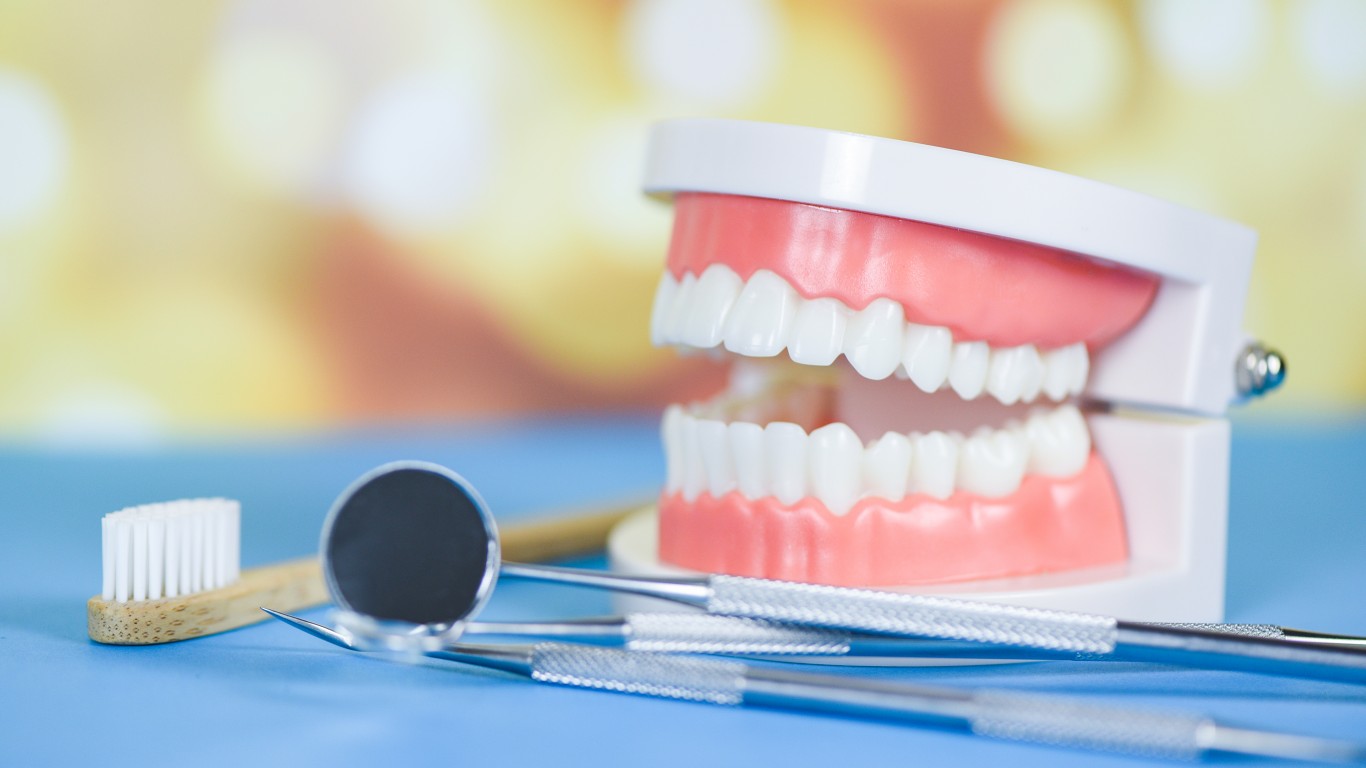
Published:

Teeth are the hardest things in the body, and some of the most practical. Without them, we couldn’t chew our food into easier digestibility; we’d have a hard time making ourselves understood when we talked; and we’d never be able to open those particularly recalcitrant potato chip bags.
The normal adult mouth has 32 teeth, their roots buried in the gums, their business ends coated in almost impenetrable white enamel over a layer of hard tissue called dentin.
Though they’re pretty sturdy, teeth are susceptible to damage from several sources (not counting getting knocked out or broken in an accident or a fight). Cavities, also called caries, are small holes that form in the tooth surfaces when streptococcus bacteria damage the enamel.
The bacteria feed on sugar and multiply, combining with other substances in the mouth to create plaque, a transparent film that quickly coats the teeth. If plaque isn’t brushed off thoroughly, it forms tartar, a harder coating whose removal generally requires the skills of a dental hygienist.
The bacteria in plaque and tartar attack the teeth, causing cavities, sensitivity to heat and cold, and sometimes gingivitis, an inflammation of the gums. (Tooth decay is a term that refers to diseases of the teeth in general.)
Foods that are high in sugar and/or acid — which also attacks the tooth enamel — can wreck your teeth and harm your gums. There are other dangers too, though: Biting down on hard foods the wrong way can crack, chip, or break teeth. Grinding teeth, which usually happens when you’re asleep, can damage them too. Also, some substances — for instance red wine and coffee — can stain the teeth. This isn’t necessarily harmful in itself, but isn’t very nice to look at.
Basically, any food or drink that’s acidic or has a high sugar content (or is very hard) can do damage to your teeth, but some things we consume tend to get called out by dentists and other health authorities more frequently than others. For the good of your teeth and for your overall well-being, you should be aware of the top ways to cut sugar and boost your health.
Click here to see 25 foods and drinks that are wrecking your teeth and gums
24/7 Tempo has assembled a list of 25 of the worst offenders. Just because they can do damage, though, doesn’t mean you need to avoid them. After all, they’re some of the most delicious things we consume — and at least sometimes among the healthiest.
Rinsing out your mouth or brushing your teeth when you’ve finished eating or drinking will go a long way toward minimizing the harmful effects of these items — and good old-fashioned moderation is helpful, too. Here are some other healthy eating habits that will change your life.
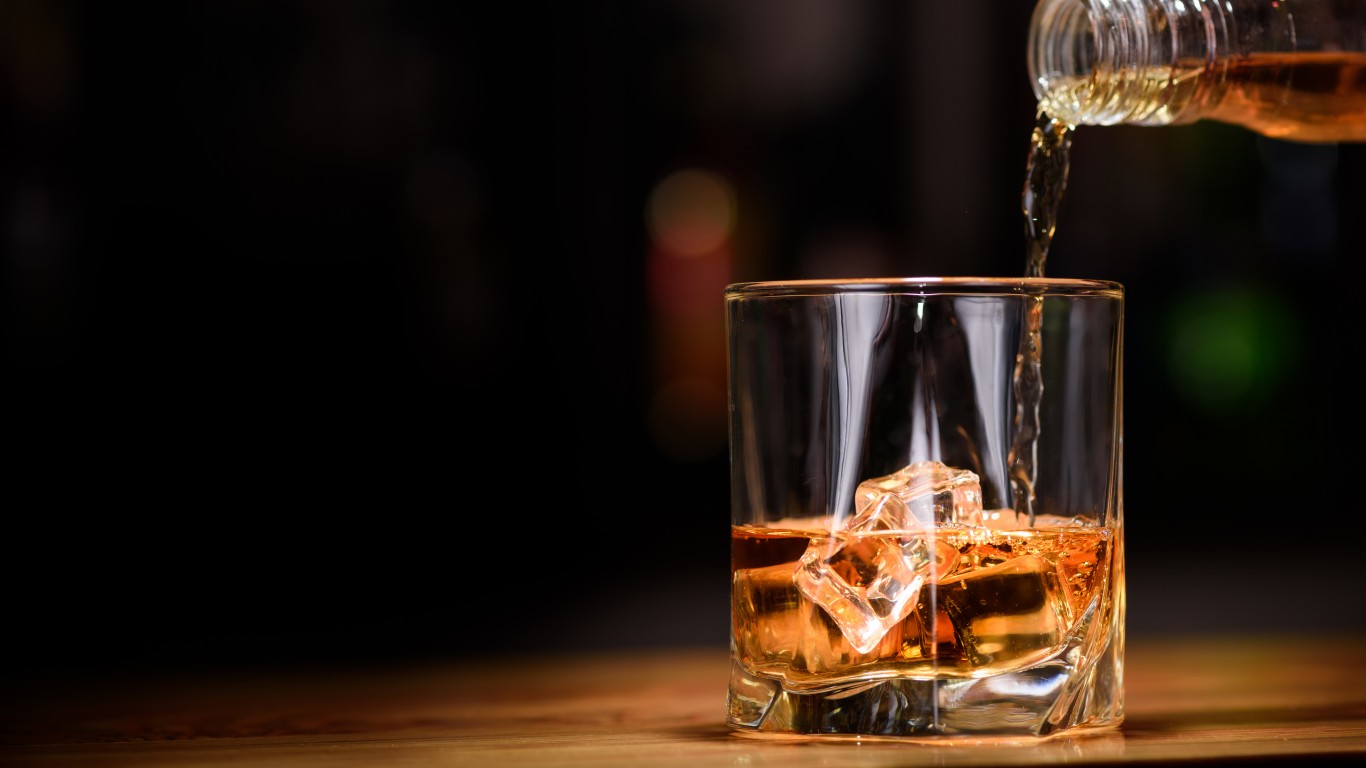
1. Alcohol
Alcohol promotes tooth decay and dental abscesses by interacting with oral bacteria to form plaque, which softens the enamel and damages the soft core of the teeth. Those who drink to excess also generally have poor diets, which can affect the salivary glands, causing more problems. On a cosmetic level, it is also worth remembering that red wine stains the teeth.
[in-text-ad]
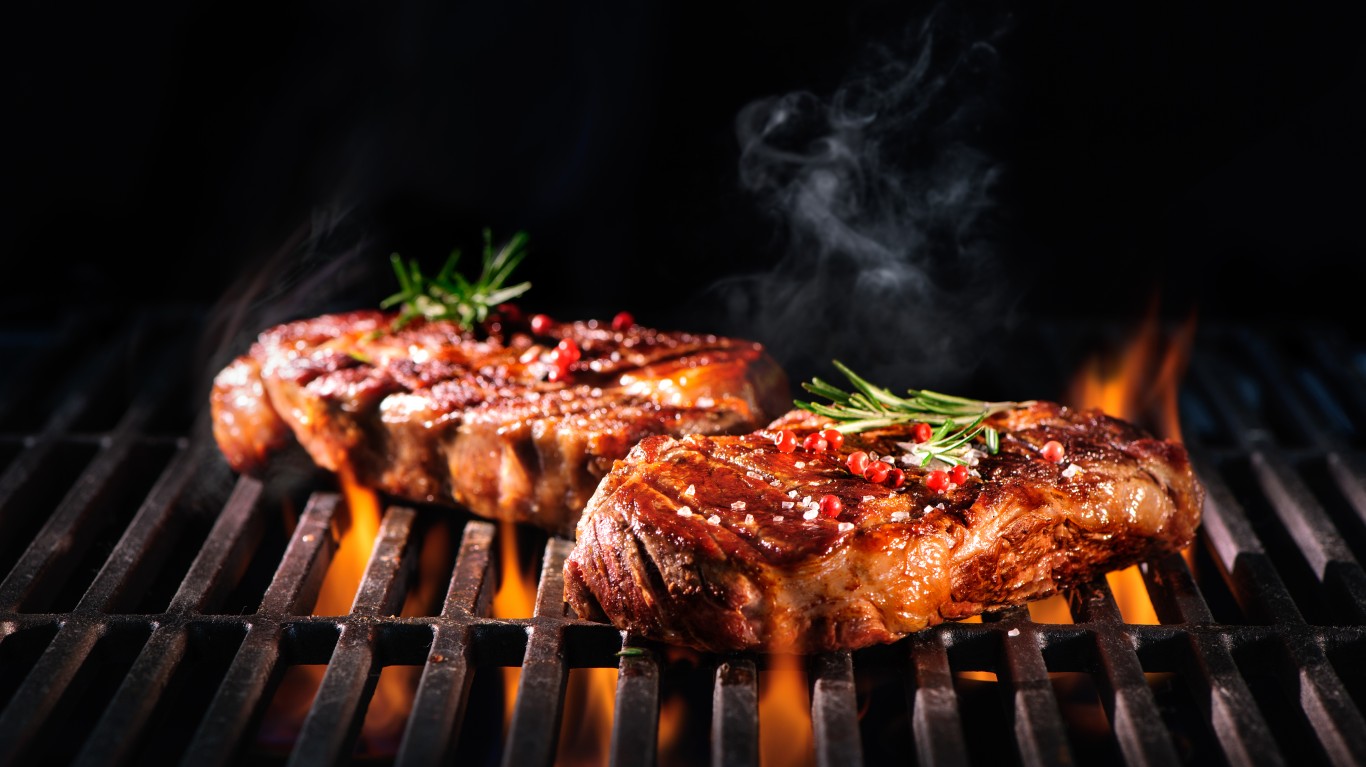
2. Barbecued meats
Other than the risk of getting a shred of pulled pork stuck in your teeth, easily remedied with floss or a toothpick, barbecued meats wouldn’t seem to pose much of a danger to your mouth. In fact, it’s not the meats themselves that are the problem but the marinades and sauces, which tend to be high in sugar and acid. Both can damage teeth and gums — sugar by promoting bacteria growth and acid by eroding enamel and making teeth more susceptible to cracking and chipping.
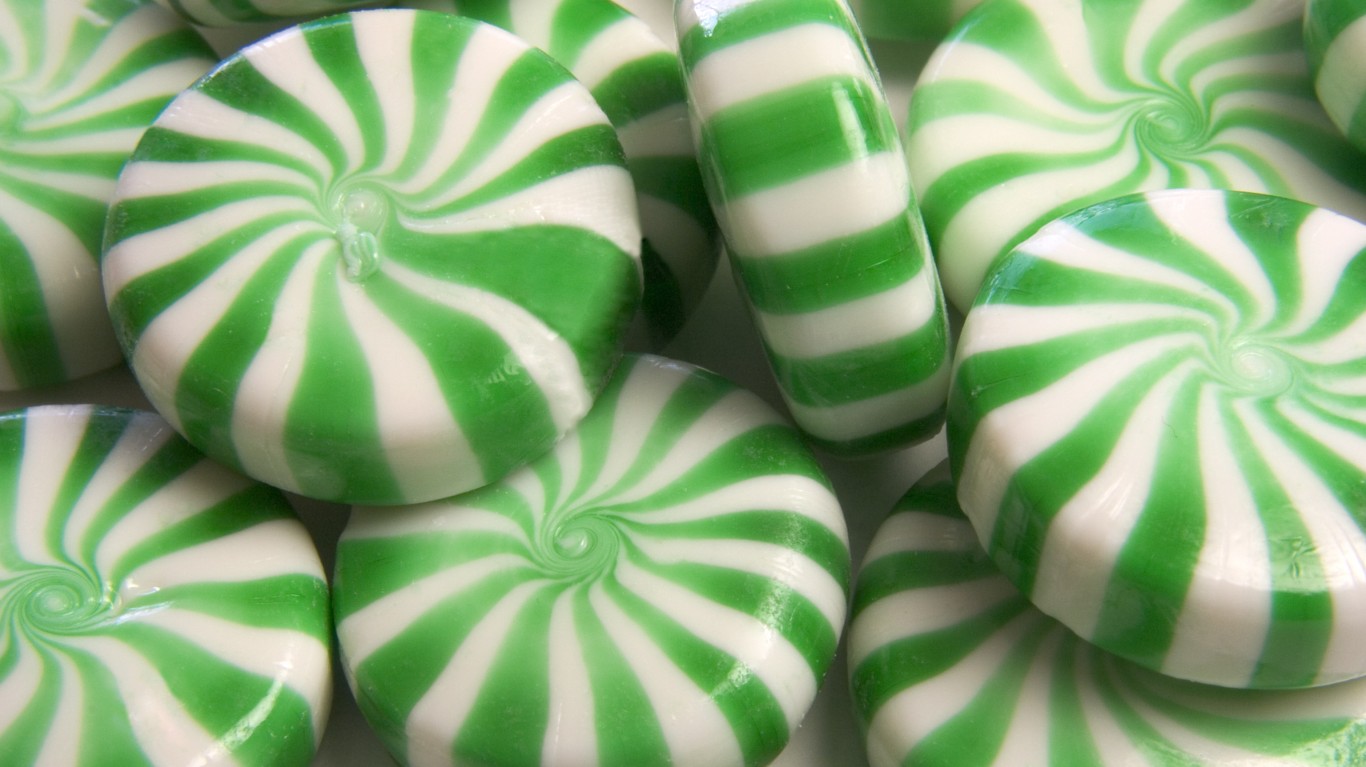
3. Breath mints
Sure, they make your breath smell better, but these hard little confections can be tough on fillings or crowns if you bite down on them too hard, and they also often contain as much sugar as a similarly sized piece of candy, contributing to decay-inducing plaque. The sugar-free variety is far preferable, not just because of the absence of sugar, but also because some of them are sweetened with xylitol, a natural sweetener that might actually help reduce bacteria.
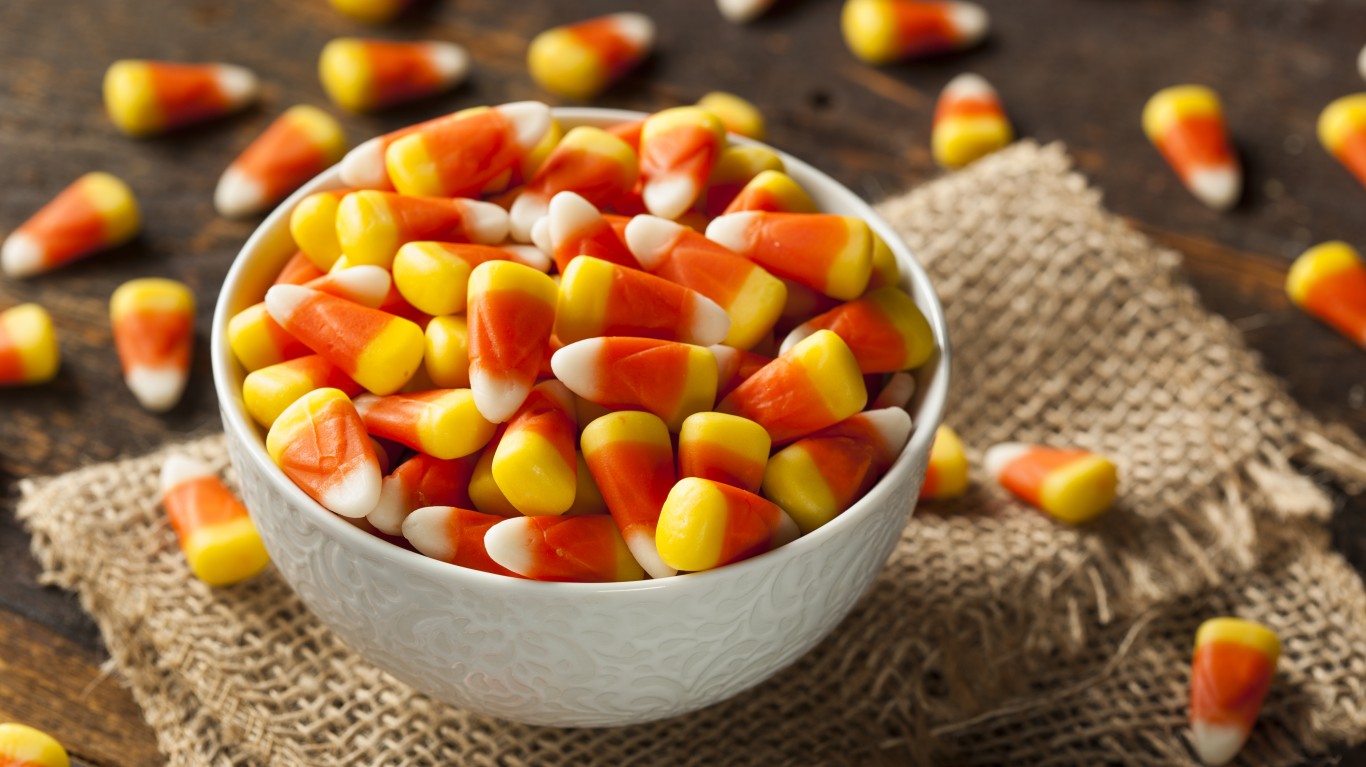
4. Candy corn
This Halloween staple is the holiday’s most iconic confection. It’s also one of the worst possible things for your teeth. It’s virtually pure sugar: The sugar content of a couple of handfuls (say 35 pieces) equals that of the added sugars in a 16-ounce Coke. Worse yet, the candy is soft and sticky, so bits of it will linger in your mouth, letting that sugar do its damage.
[in-text-ad-2]
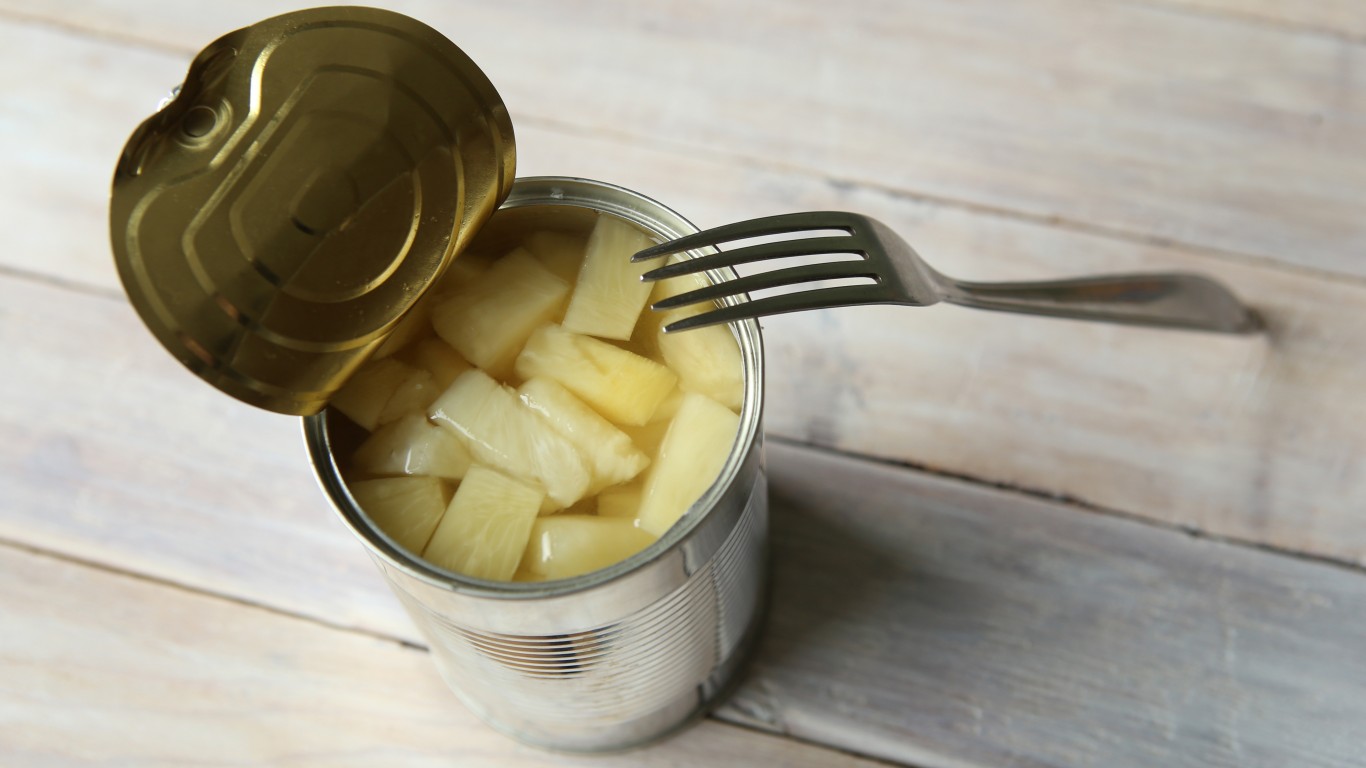
5. Canned fruit
Sure, fruit is good for us and we should all be eating more of it. Canned fruit, however, is usually packed in thick, sugary syrup, terrible for the teeth (among other things). Fresh fruit is better — most varieties, anyway — but if you must go for canned, choose an option packed in 100% fruit juice or with no sugar added.
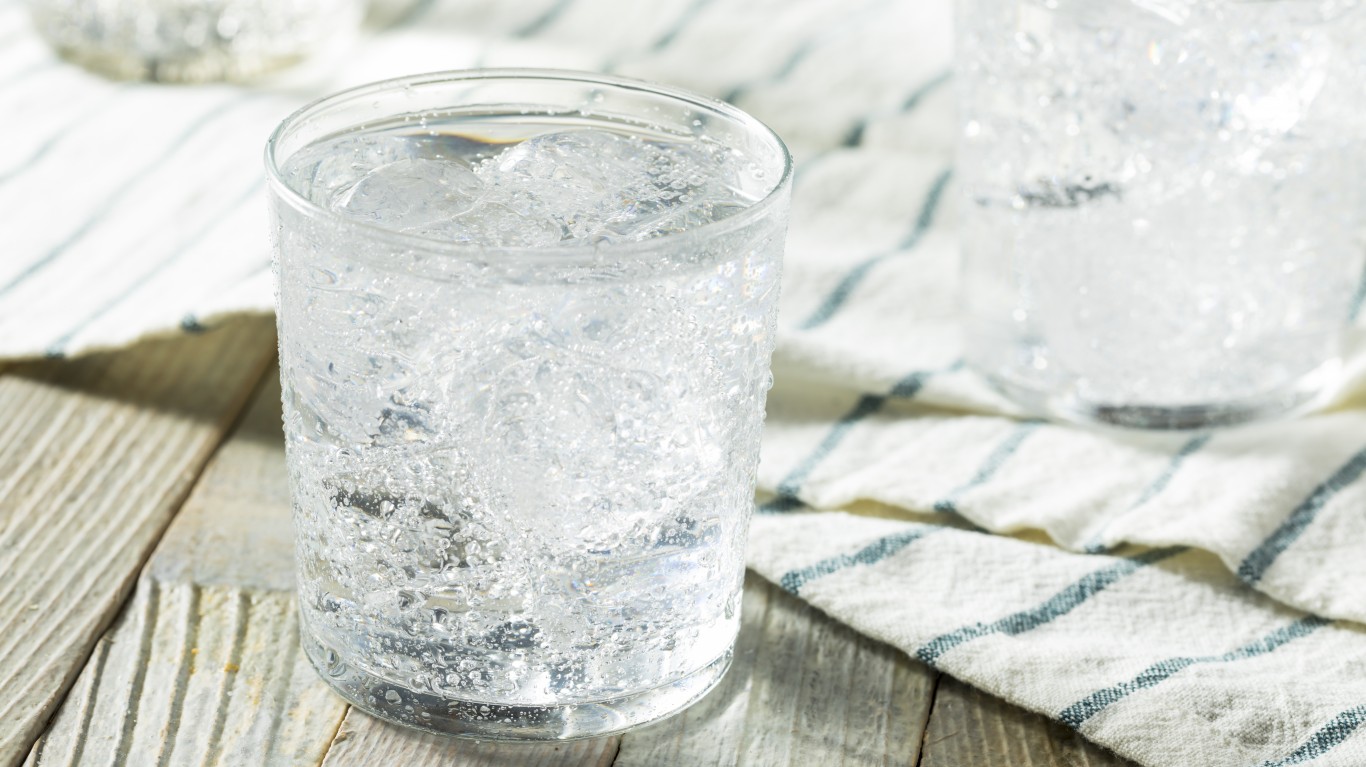
6. Carbonated drinks
Sugar is the villain again with sweetened sodas, but even the sugar-free or diet variety can be harmful because of the acidity. A single sip of soda, say dental experts, can harm teeth for about 20 minutes — renewed with every sip. Citrus-flavored sparkling waters are better, but their acidity can cause minor damage to enamel. Even unflavored carbonated water can cause problems, as some have a low pH (meaning a high acid level).
[in-text-ad]
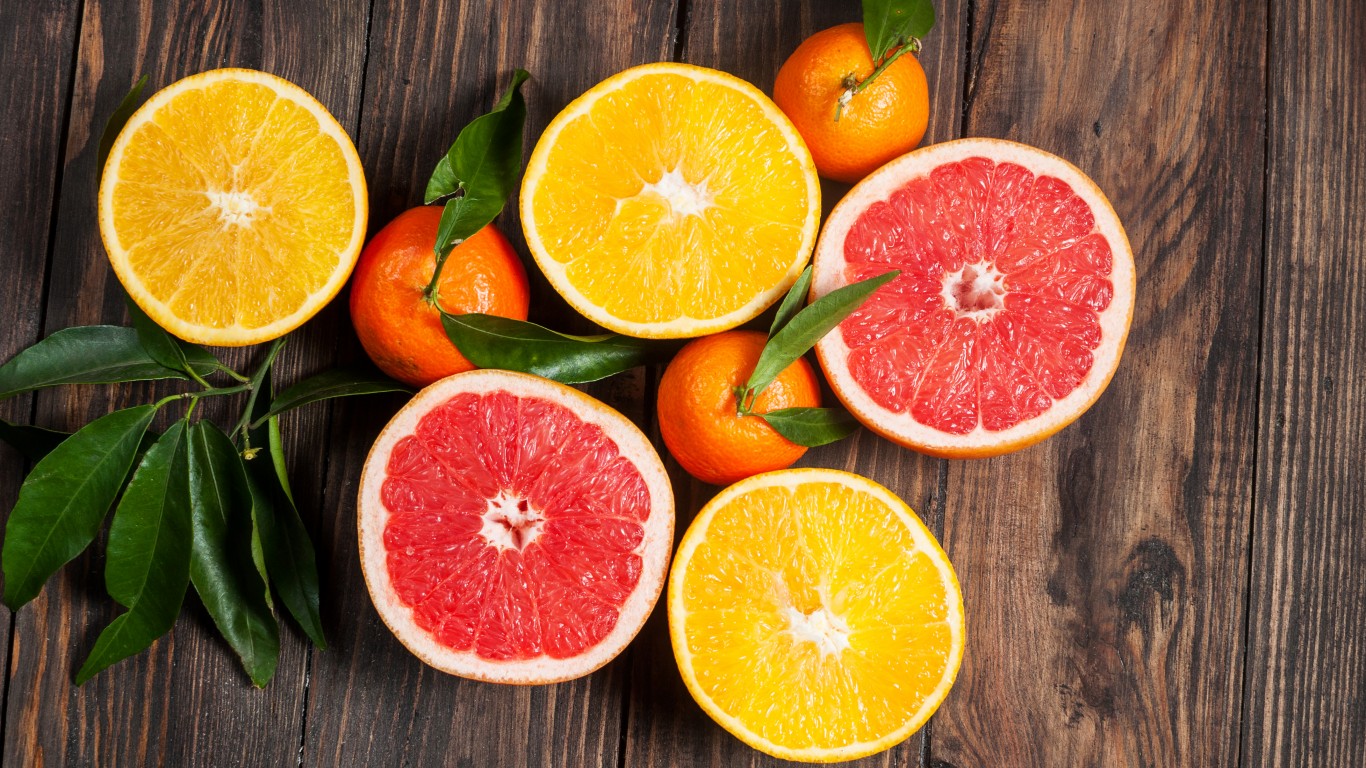
7. Citrus fruit
Grapefruit, oranges, tangerines, lemonade, and the like are great sources of vitamin C and other nutrients — but they’re also highly acidic and can damage tooth enamel. After eating (or drinking) a big serving of citrus, it’s a good idea to wash your mouth out with water.

8. Coffee
Any beverage (other than plain water) can encourage bacterial growth in the mouth, leading to tooth damage — coffee included. The tannins in coffee can also discolor your teeth. Even a single cup per day can turn them brownish-yellow. Needless to say, elaborate coffee drinks made with lots of syrups and other added ingredients are even worse for the teeth.

9. Crackers
According to the website Ask the Dentist, “the #1 most cavity-causing (cariogenic) food there is” … saltine crackers. They’re considered even more potentially damaging than candy. They’re a simple starch, meaning that they convert almost instantly into sugar for mouth bacteria to feed on. The starch also turns gummy with saliva and is apt to stay lodged in your teeth even after you’ve finished snacking. Goldfish crackers and other varieties are just as bad.
[in-text-ad-2]
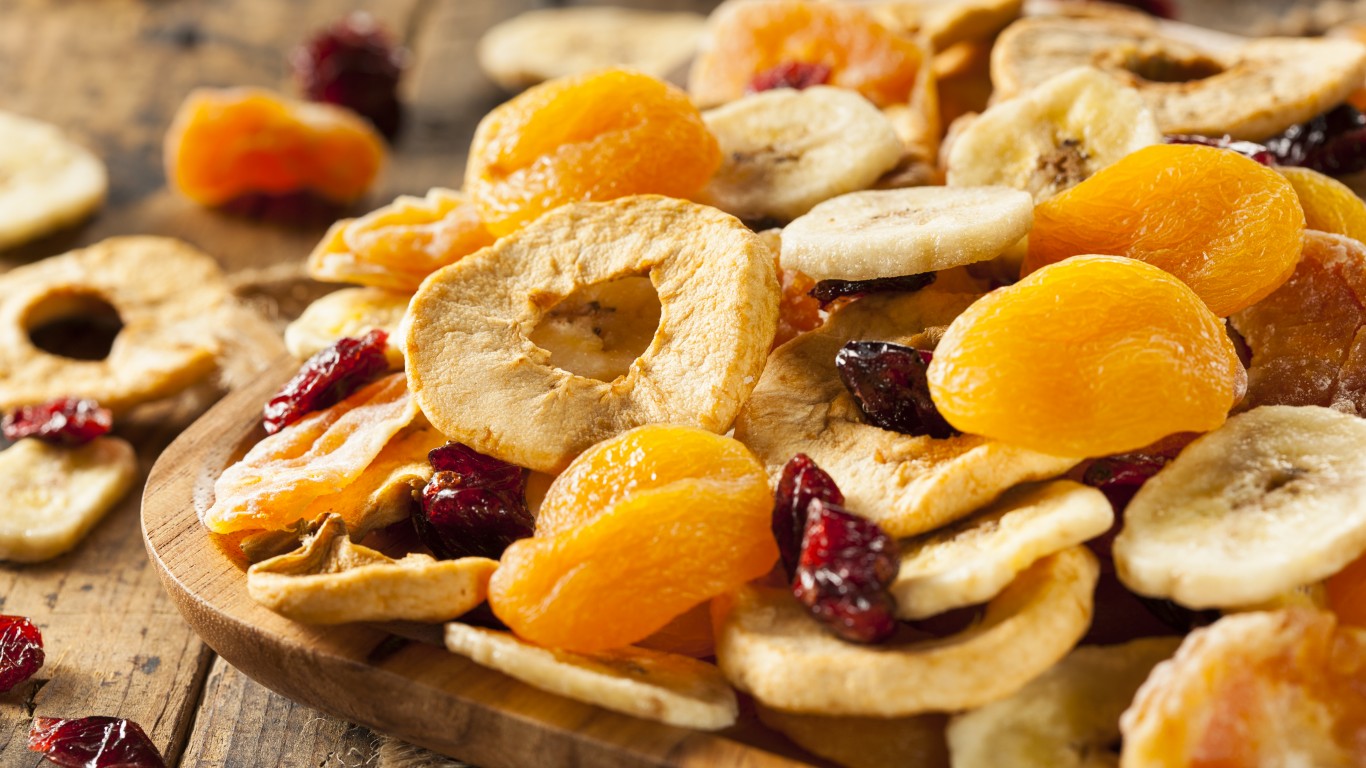
10. Dried fruit
Not only is dried fruit considerably higher in calories than fresh fruit, it also has much more sugar per piece, so is more apt to encourage bacterial growth. In addition, because it’s so dense and sticky, it tends to get stuck in the teeth where it can linger and do its damage over a period of hours.
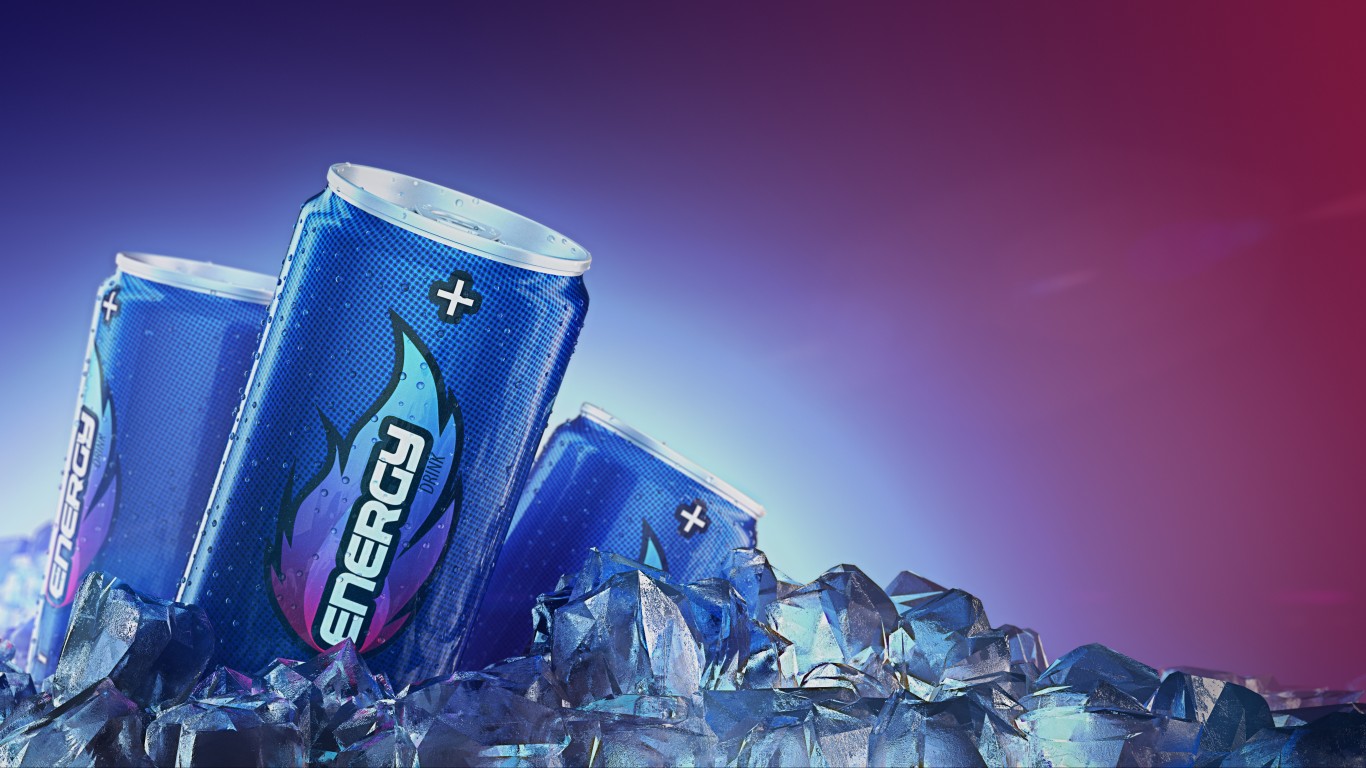
11. Energy drinks
Drinking energy or sports drinks can be like giving your teeth an acid bath. Energy drinks are the worst, with twice as much acidity as sports drinks in many cases. Acidic drinks lower saliva’s pH (which means raising its acidity), and it takes about half an hour for the saliva to return to normal — meaning that the damage continues long after you’ve had your last sip. Another problem is that caffeinated beverages promote hyperactivity, which for some people leads to grinding of the teeth, causing further problems.
[in-text-ad]
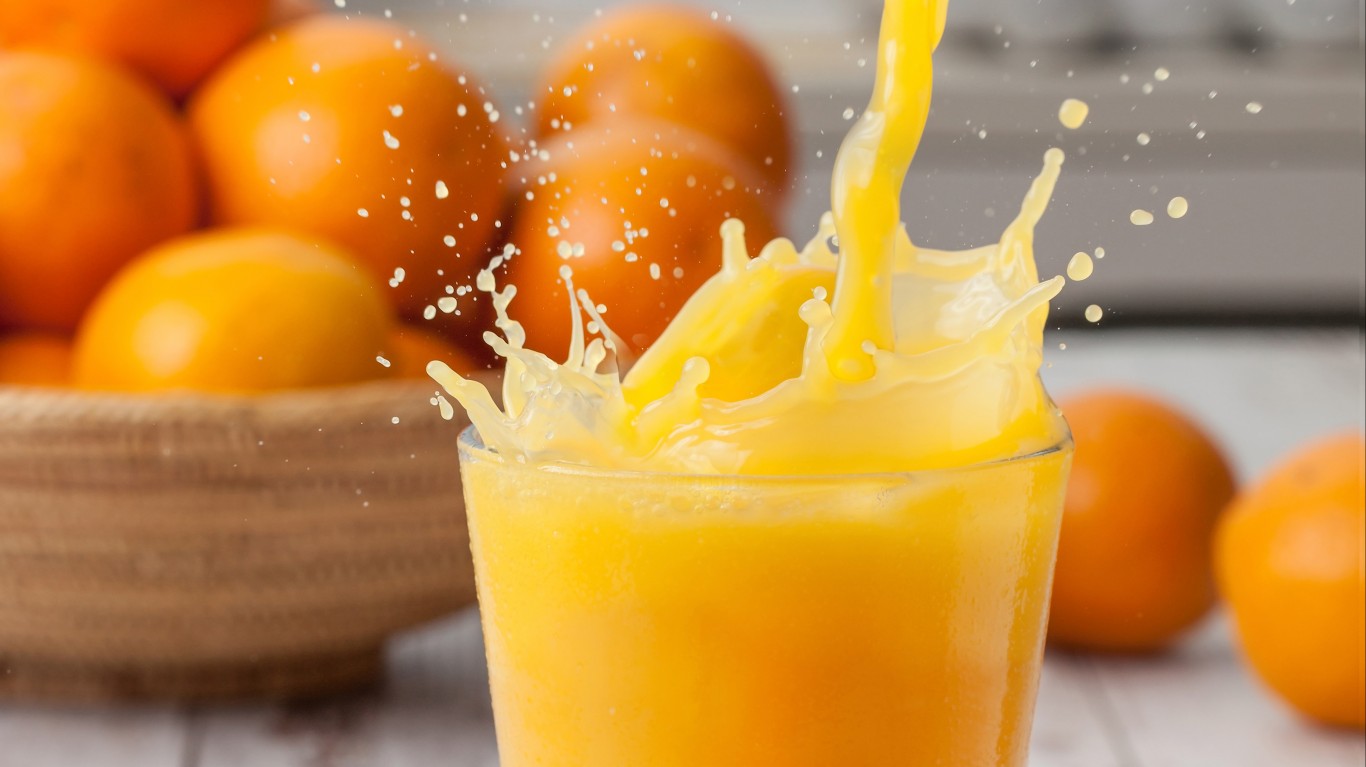
12. Fruit juice
As noted above, citrus fruits are highly acidic and can damage tooth enamel. But other kinds of juice can be problematic, too. Cranberry juice, for instance, is actually more acidic than orange juice.
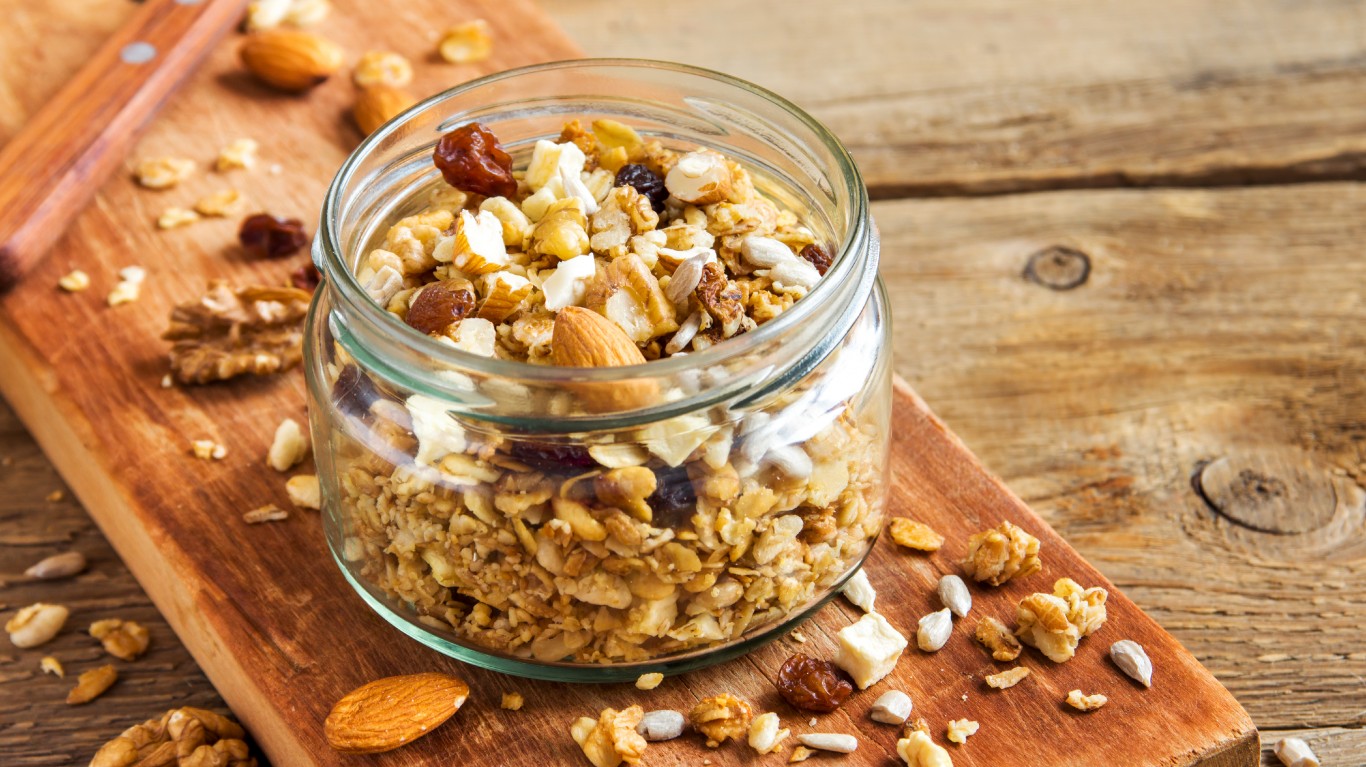
13. Granola
Though often considered a healthier alternative to ordinary breakfast cereals, granola is typically loaded with sugar. It also usually contains raisins (which stick to the teeth) and hard nuggets of grain that can chip or break already-weakened teeth. Granola bars can be as bad or worse, because in addition to the sugar in the granola itself, some manufacturers coat their bars with an extra crust of sugar, adding both extra bacteria-inducing sweetness and further opportunities for chipping or breaking the teeth.
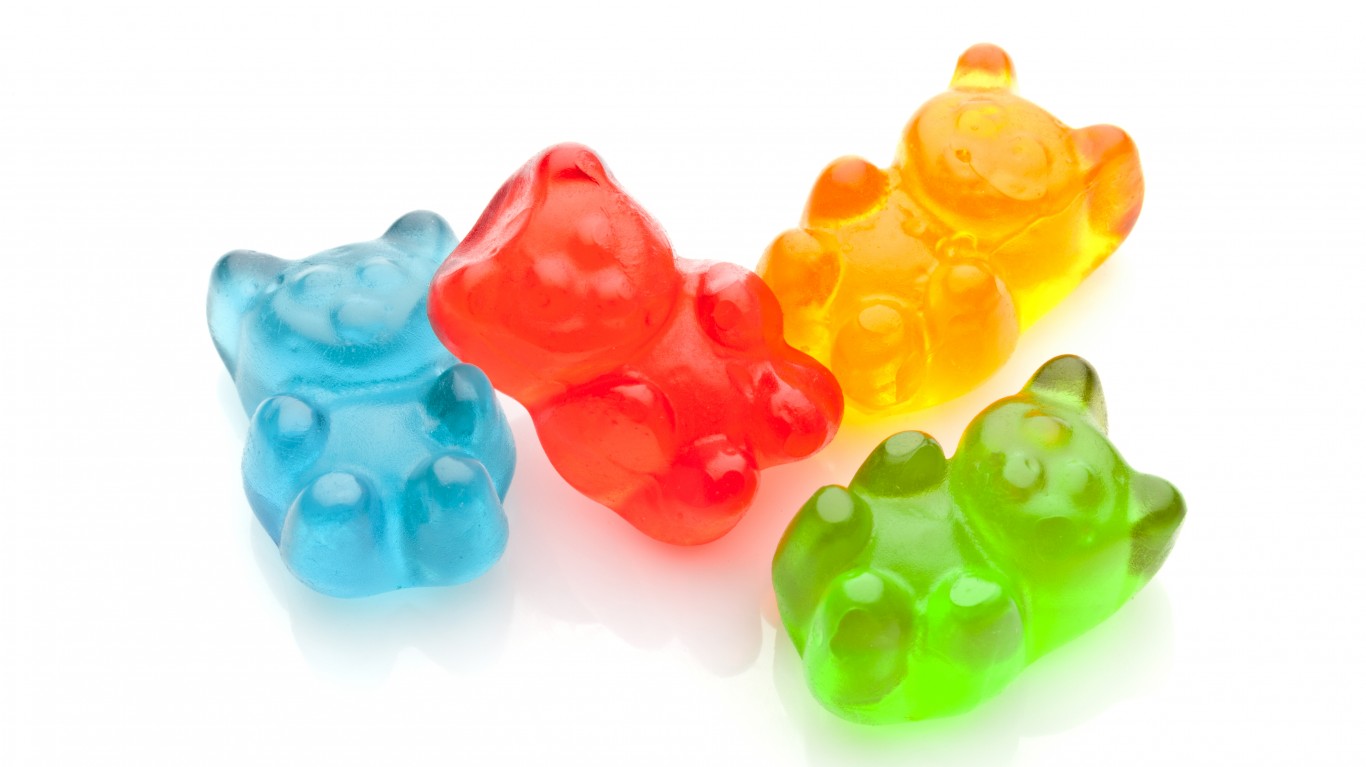
14. Gummy bears
Gummy bears and other gummy candies (Swedish Fish, Jolly Ranchers, etc.) are among the worst candy varieties because they stick to the teeth so tenaciously — and the longer sugary substances are in contact with the enamel, the more bacteria grows and the more cavities result.
[in-text-ad-2]
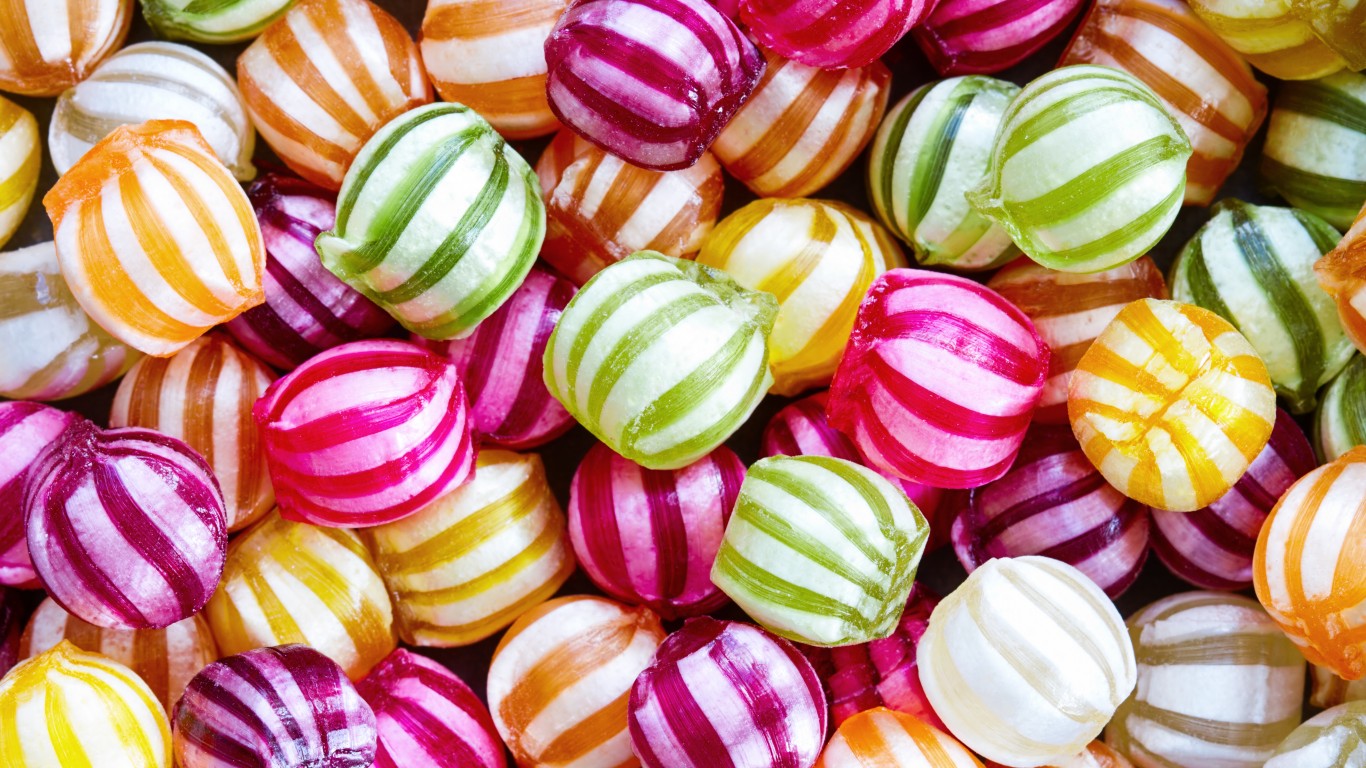
15. Hard candy
Hard candies are a double-threat problem for the teeth: They’re basically pure plaque-inducing sugar, and they’re, well, hard — which means that biting down on them can crack, chip, or break a tooth.
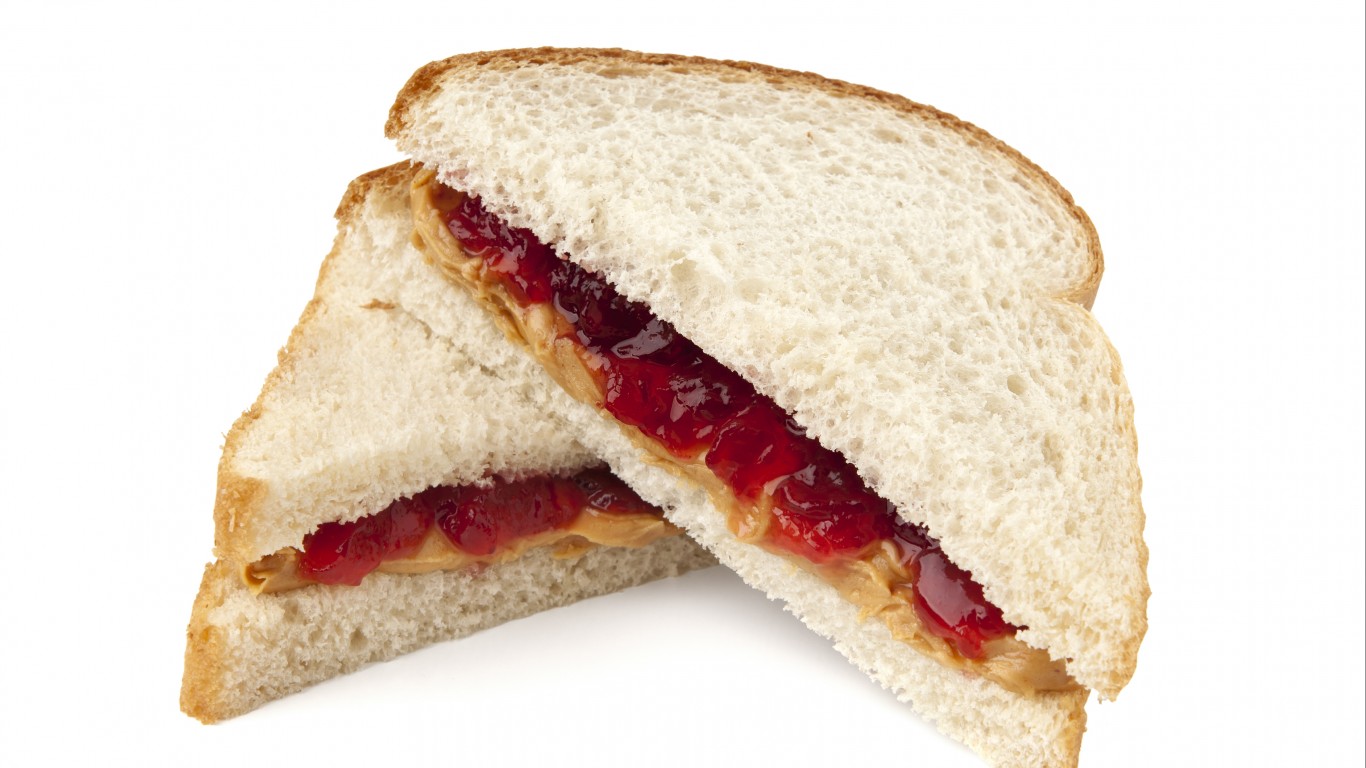
16. Peanut butter and jelly
Jelly is obviously sweet, and most mass-market peanut butters are sweetened, too, so this popular sandwich ends up being a sugar bomb. Making it on white bread compounds the dangers (see below).
[in-text-ad]
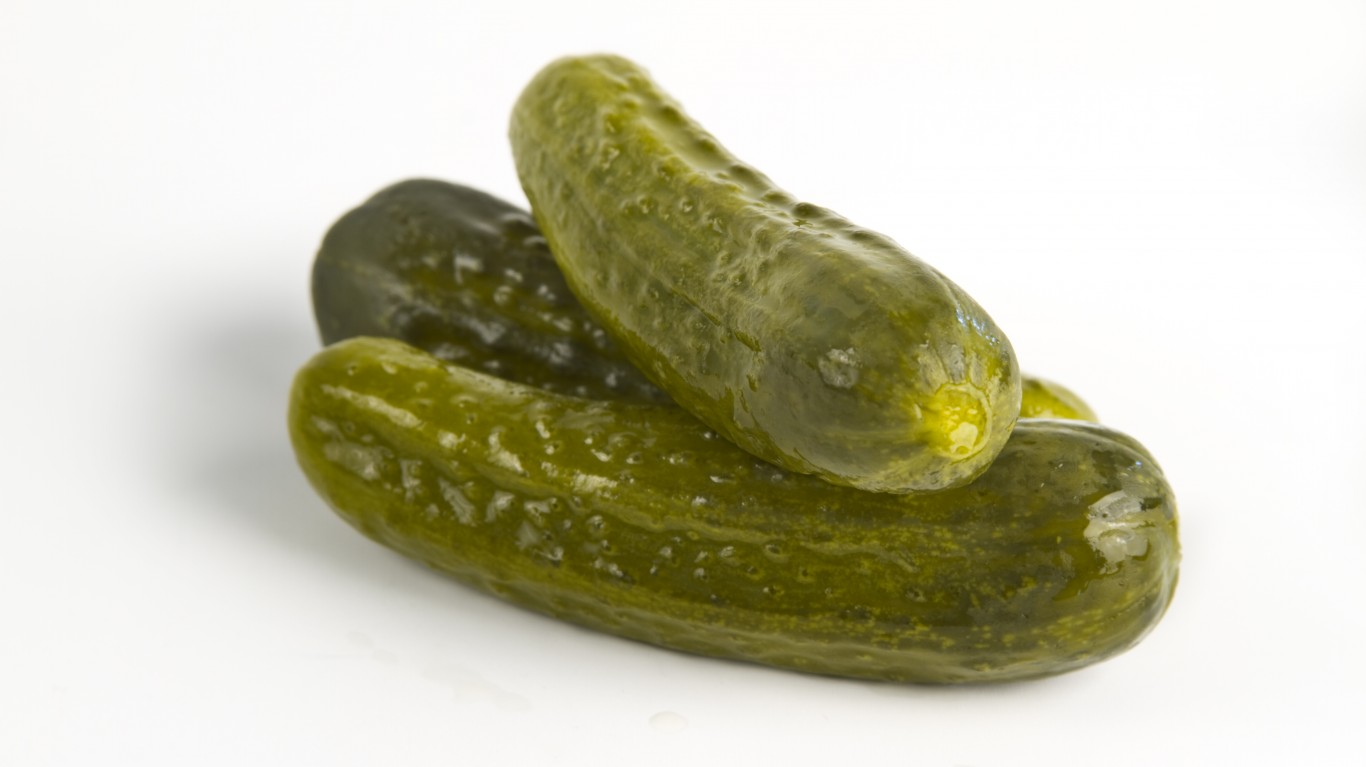
17. Pickles
Sweet pickles are a one-two punch — acid and sugar, both bad for your teeth. Even dill pickles and other sour pickled vegetables, though, can be destructive, as the vinegar with which they’re preserved wears down tooth enamel. A dentist’s tip: If you’re eating something pickled, have a bite of cheese along with it. The calcium in the cheese neutralizes the vinegar’s acidity.
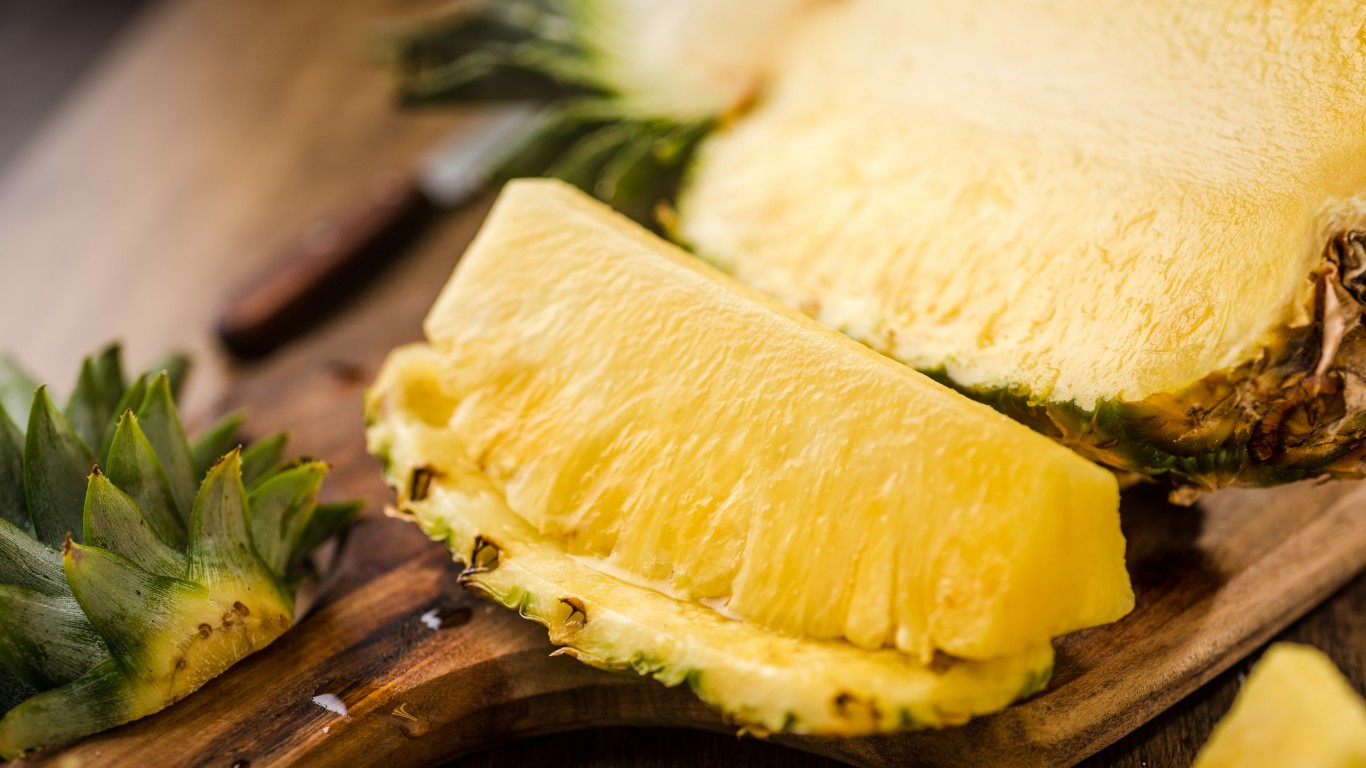
18. Pineapple
There’s good news and bad news about this luscious tropical fruit: Pineapple contains an enzyme called bromelain which can act as a natural stain remover and even help dissolve harmful plaque. On the other hand, like many fruits, pineapple is high in acid, which can break down the enamel that protects the teeth.
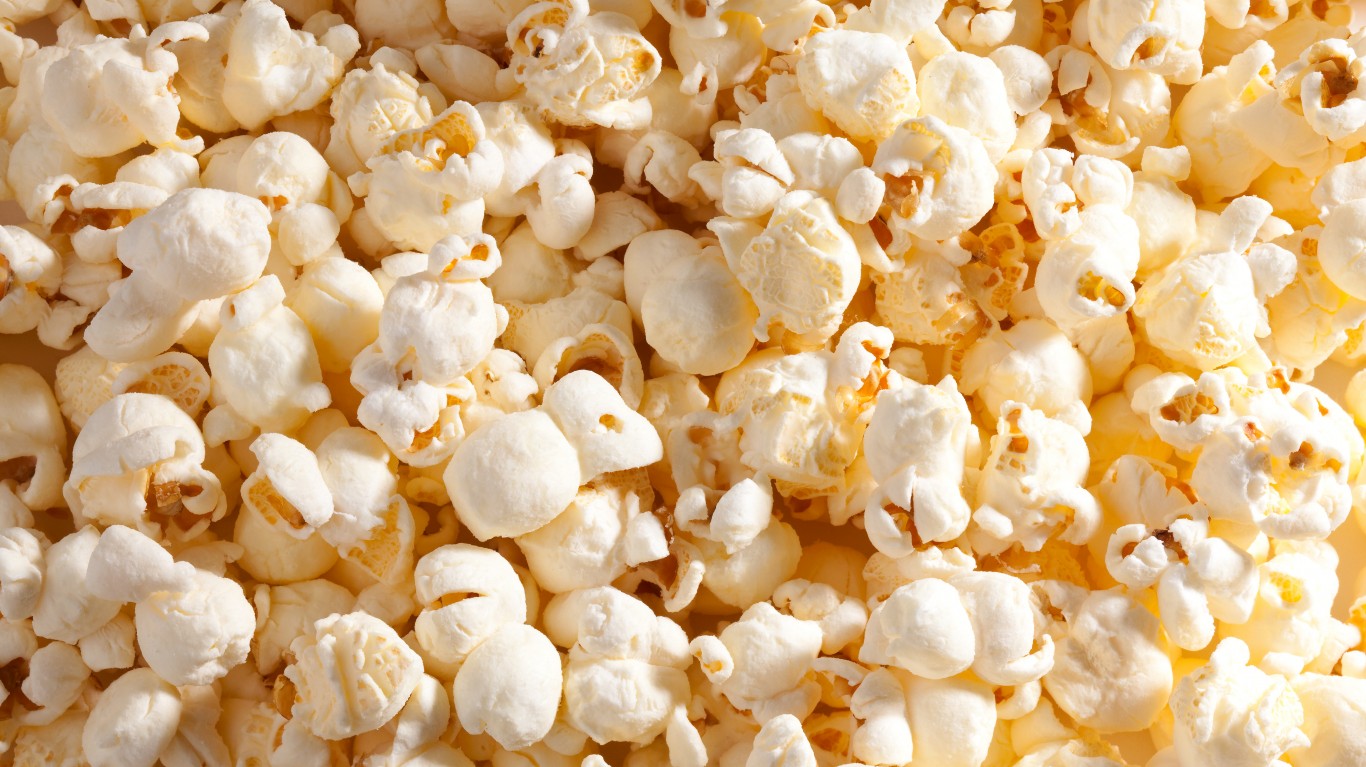
19. Popcorn
Popcorn is a healthy snack, but it can cause gum and tooth issues because the hulls of the popped corn, as well as the “old maids” (the half-popped kernels) can easily lodge not only between the teeth but between teeth and gums, too.
[in-text-ad-2]
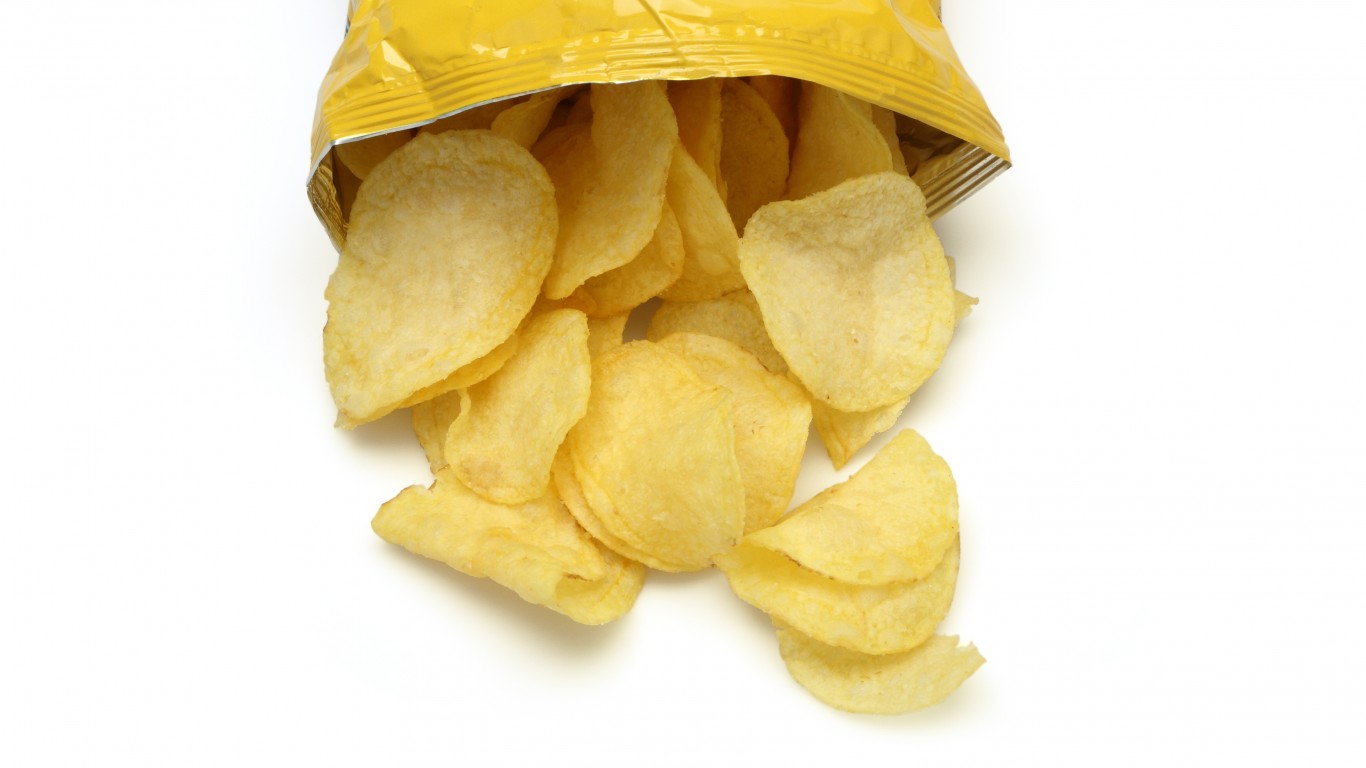
20. Potato chips
Like crackers, potato chips are pretty much pure starch, which gets converted quickly into sugar. When bits of chip and the sugar they produce get trapped between your teeth or in your gums, they just sit there and nourish the bacteria that forms plaque. Cavities result.
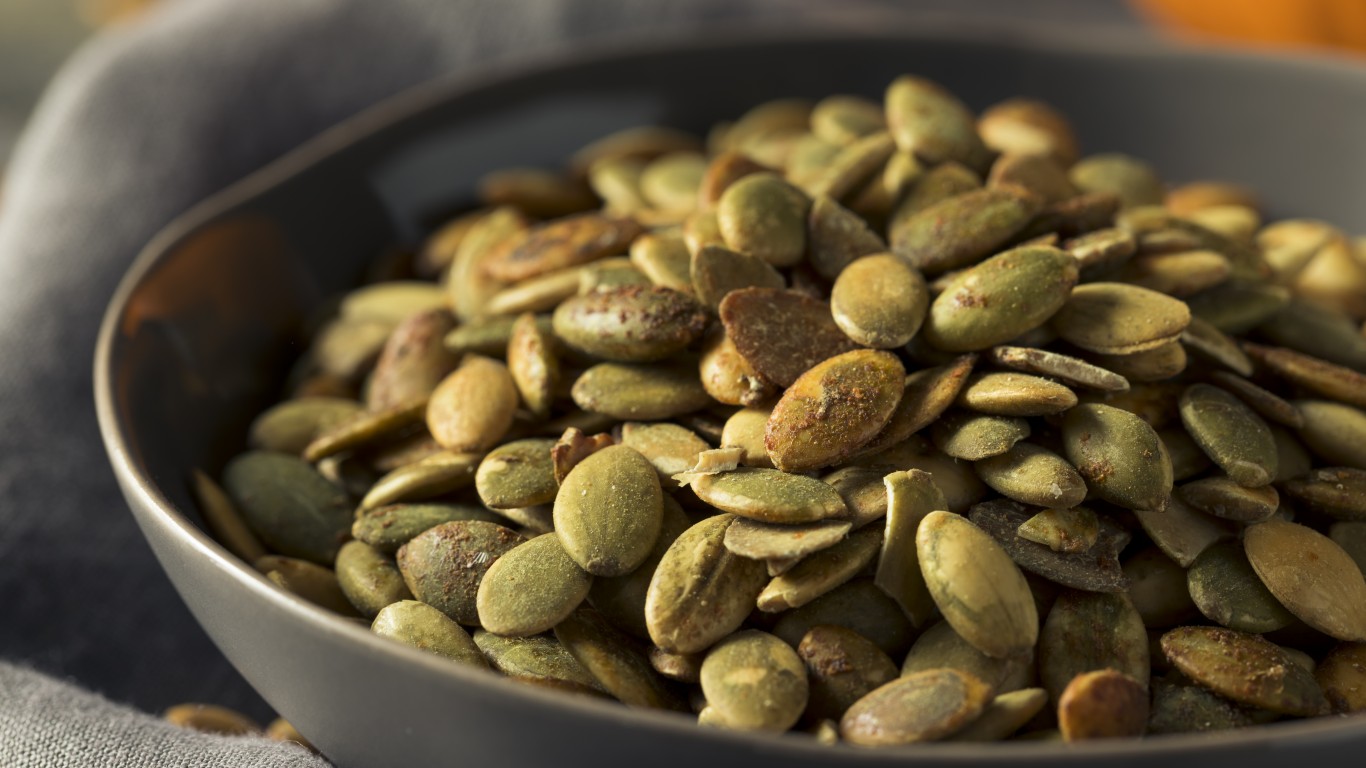
21. Pumpkin seeds
Dentists often see chipped front teeth, the result of trying to crack pumpkin seeds (and other kinds) open. Fragments of the seeds can also lodge between the teeth.
[in-text-ad]
22. Raisinets
“Raisinets are the devil!” L.A. cosmetic dentist Jon Marashi told Business Insider last year. The sweetened chocolate is bad enough, but the raisins are even worse because, like other dried fruits, they leave sticky residue in and on your teeth. “The chocolate,” says Marashi, “is just kerosene for the fire!”
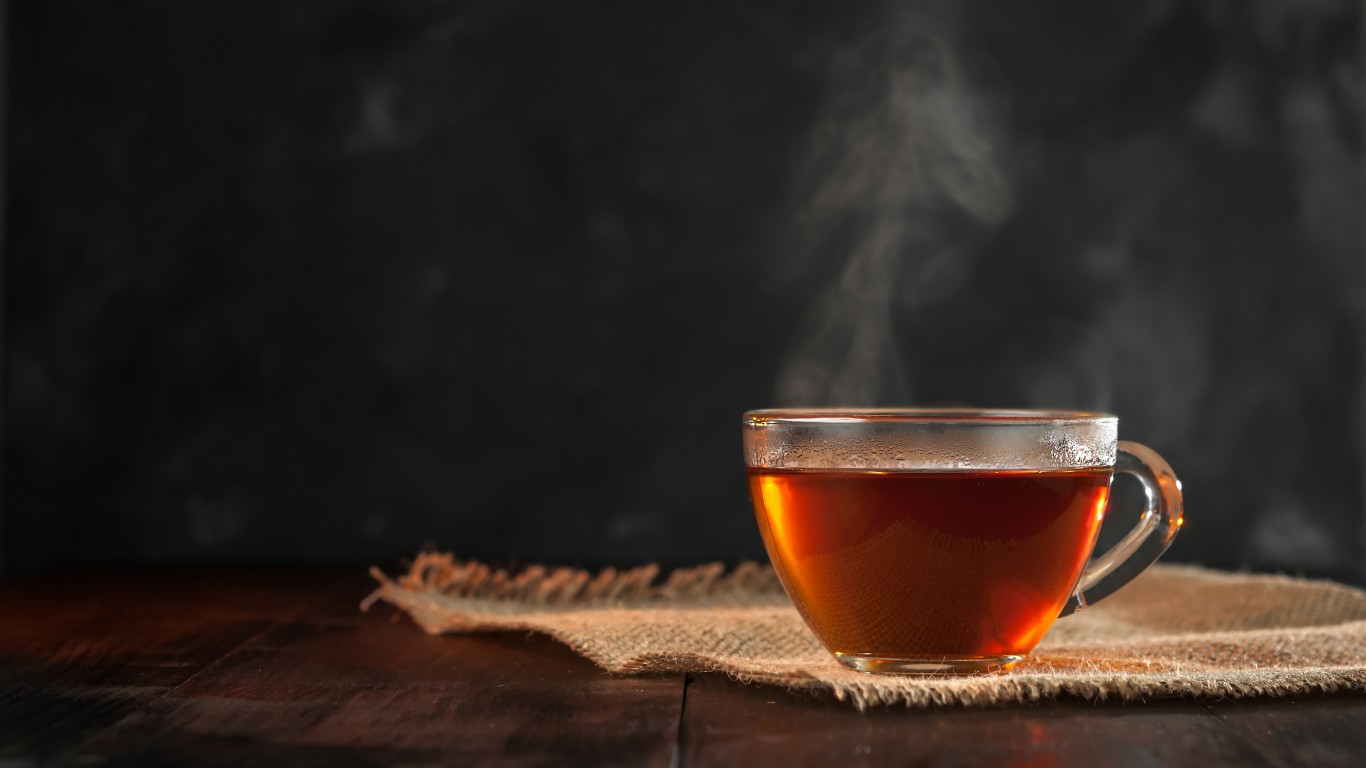
23. Tea
Some types of tea are thought to neutralize the demineralization of tooth enamel, but the tannins in other types can both stain and erode teeth. A University of Iowa College of Dentistry study several years ago found that black tea does damage faster than green tea — but even black tea took a lot longer to do harm than vinegar or carbonated beverages.
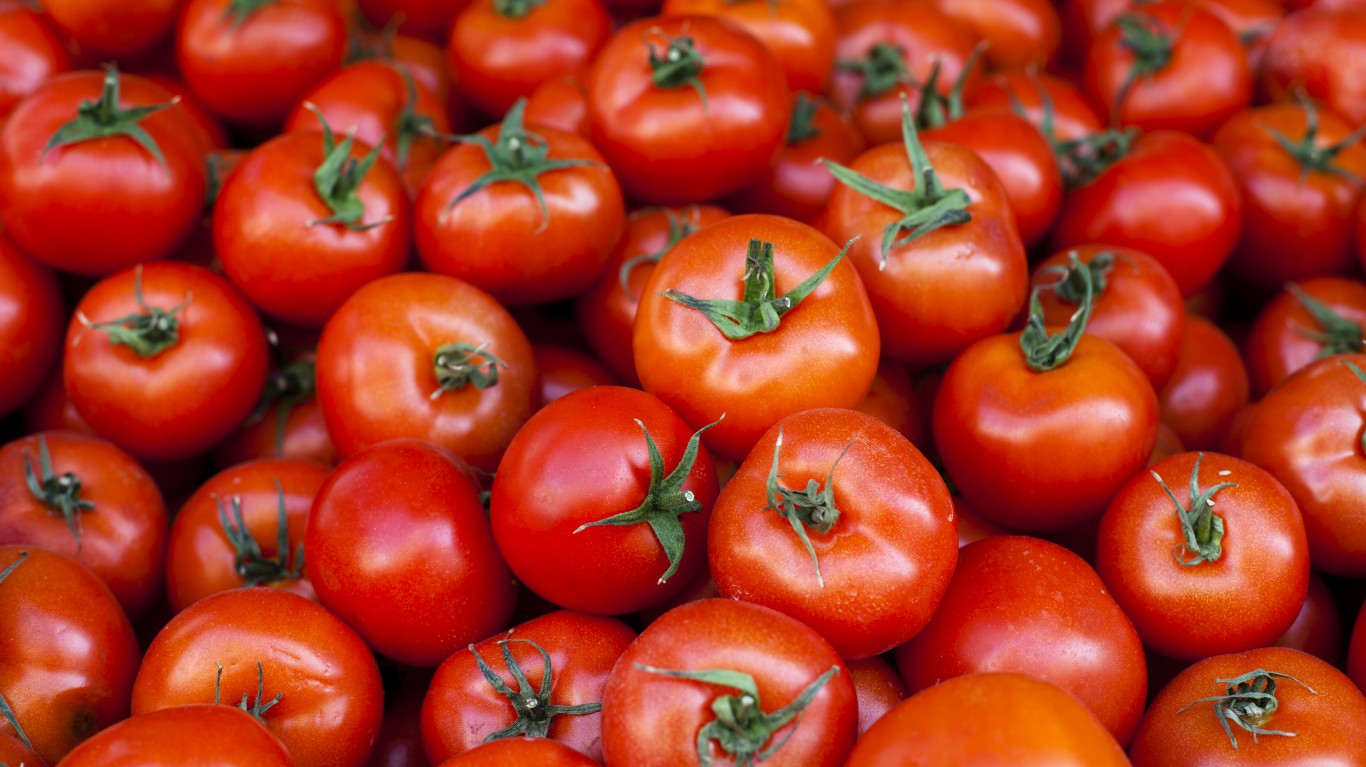
24. Tomatoes
Tomatoes are very acidic, and can damage enamel if they’re eaten raw and on their own (other ingredients eaten with them, for instance mozzarella, will help to minimize the damage). They may also cause acid reflux, which itself can damage teeth.
[in-text-ad-2]
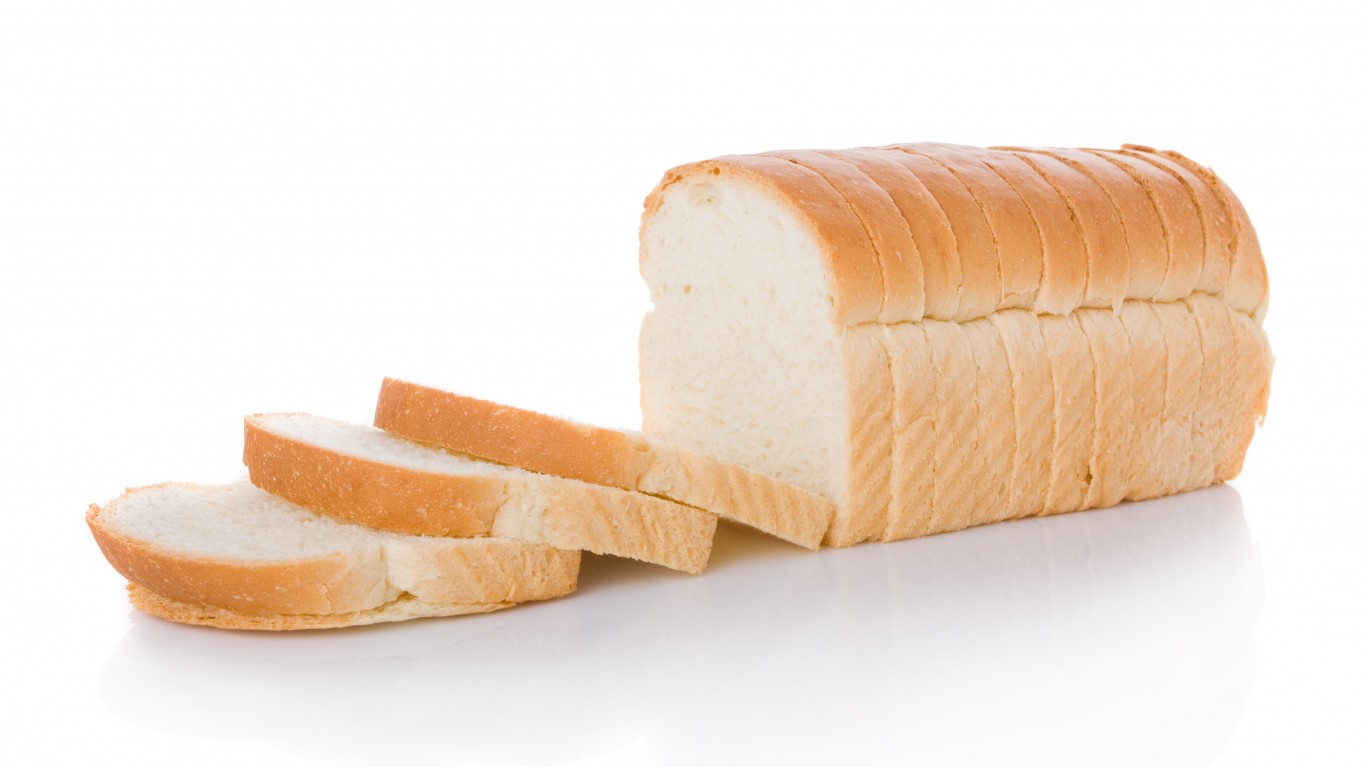
25. White bread
Bread of any kind can leave bits of moistened starch in the nooks and crannies of your teeth, but white bread — the kind you can scrunch up into a small ball — is the worst variety. It sticks to your teeth like library paste, while releasing sugar to feed the bacteria in your mouth.
Are you ahead, or behind on retirement? For families with more than $500,000 saved for retirement, finding a financial advisor who puts your interest first can be the difference, and today it’s easier than ever. SmartAsset’s free tool matches you with up to three fiduciary financial advisors who serve your area in minutes. Each advisor has been carefully vetted and must act in your best interests. Start your search now.
If you’ve saved and built a substantial nest egg for you and your family, don’t delay; get started right here and help your retirement dreams become a retirement reality.
Thank you for reading! Have some feedback for us?
Contact the 24/7 Wall St. editorial team.